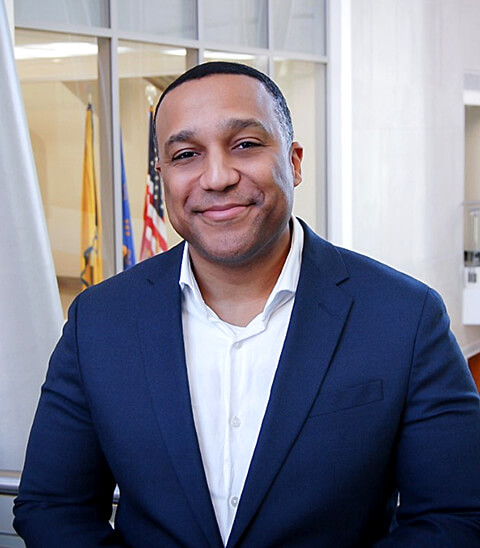Paul Jones, PhD, Social Science Analyst, Psychologist
"I see my contribution to the FDA as helping to ensure that science continues to be at the forefront when patient information-related policies are being developed."
-- Dr. Paul Jones, Social Science Analyst, Psychologist, Center for Drug Evaluation and Research
Q: What opportunities does the FDA offer you that you couldn’t get elsewhere?
Paul Jones: Beyond working with talented scientific and regulatory minds, the FDA offers me the chance to use my expertise and scholarly experiences to help inform or lead the development of Agency policies on topics related to patient labeling.
I see my contribution to the FDA as helping to ensure that science continues to be at the forefront when patient information-related policies are being developed. Additionally, the policies I work on help ensure that patient information submitted to (and ultimately approved by) the Agency is readable, understandable, and actionable for everyone, including those with limited health literacy. I also do my part to make sure that our patient-facing messaging and materials are as concise, simple, and straightforward as possible.
FDA also offers me other notable opportunities, such as contributing articles to peer-reviewed journals, collaborating and conducting regulatory research, and serving on internal and external review panels. These activities are very rewarding for someone like me, who spent over a decade conducting NIH-funded research, working on federal contracts, publishing articles, and writing proposals before joining FDA.
Q: Why do scientists like you stay at the FDA?
PJ: I’ve learned that the key to retaining top scientific staff depends on an organization’s ability to foster an environment in which talent has a sense of transcendent purpose, is continually challenged, is given opportunities to master new skills and knowledge, and has a sense of autonomy.
By its very nature, the work we do at the FDA to protect the health and well-being of Americans gives us a sense of higher purpose. And, inspired by our public health mission, I’ve been challenged to lead efforts in my division.
In addition, the FDA has dedicated resources and staff to providing us with opportunities to master new skills and accumulate knowledge through training and development courses (e.g., statistics, leadership). I’m also given the autonomy to develop new ideas aimed at improving patient information.
All things considered, the FDA offers me the chance to grow personally and professionally in ways that go beyond what I’ve experienced elsewhere.
Q: How do you use your science degree at the FDA?
PJ: I earned my PhD in Social Psychology from the University of Maryland where my research focused on better understanding whether activating negative stereotypes about women could lower their math performance. At my previous employer, my colleagues and I later applied this idea to public health to determine whether similar effects might happen among minority populations (e.g., delaying the receipt of preventive screenings).
I also had the chance to work with economists and public health professionals to examine the incidence, costs, and prevention of childhood injury morbidity and mortality. Many of the products we produced were intended to better educate policymakers, researchers, stakeholders, and the general public about these important issues.
Given my research experience and lessons learned, it felt natural for me to transition into medical policy to help the FDA find new and innovative ways to make patient information more readable, understandable, and actionable for patients and caregivers. In addition, because some of the patient groups that I examined in my own research are at higher risk for making medication errors (e.g., due to having limited health literacy, and/or experiencing chronic disease and accompanying polypharmacy), this understanding enabled me to bring a unique perspective to the patient information-related activities that I’ve been a part of.
Equally important, much of the financial support that I’d received in the past was publicly funded (i.e., scholarships, fellowships, grants, and contracts). So, I’d like to give back by applying my training and the lessons I’ve learned to the work that I do at the FDA to improve the public health.
Q: How is science conducted at the FDA unique from science conducted at the National Institutes of Health, academia, or industry?
PJ: As a former NIH-funded principal investigator who worked at a nonprofit and in academia before joining the FDA, I often heard other scientists voice their concern that although their research would be published in prominent journals, it often fell short of having an impact on the very people who could benefit from it most. Simply put, few researchers see their work as helping to shape public policy, rules, and regulations in a meaningful way.
Research conducted outside of the FDA often focuses on accumulating scientific knowledge, but not necessarily in a manner that will help to shed light on a practical, regulatory issue. Science conducted at the FDA is often unique, in that it typically focuses on a specific issue or phenomenon that has direct relevance to regulatory-decision making.

